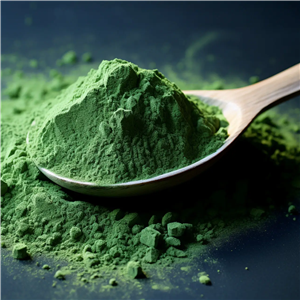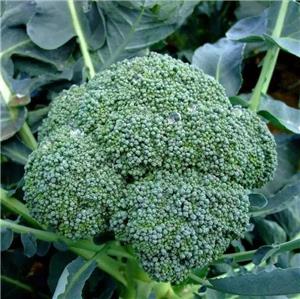Health Topics
A healthy diet helps protect against malnutrition in all its forms and is a foundation for health and development. It also helps to prevent noncommunicable diseases including diabetes, cardiovascular diseases, some cancers and other conditions linked to obesity. Together with a lack of physical activity, an unhealthy diet is one of the leading global risks to health.
-
1605-2021
What Is Caffeine, and Is It Good or Bad for Health?
Each day, billions of people rely on caffeine to wake up, or to get through that night shift or an afternoon slump. In fact, this natural stimulant is one of the most commonly used ingredients in the world (1Trusted Source). Caffeine is often talked about for its negative effects on sleep and anxiety. However, studies also report that it has various health benefits. This article examines the latest research on caffeine and your health.
-
1305-2021
An Apple a Day Keeps the Doctor Away — Fact or Fiction?
You likely know the familiar expression, “An apple a day keeps the doctor away.” While the phrase was first coined in 1913, it was based on a Pembrokeshire proverb that originated in 1866. In fact, Notes and Queries magazine was the first to publish the original quote: “Eat an apple on going to bed, and you’ll keep the doctor from earning his bread.” Although research shows that eating more apples may not actually be associated with fewer visits to the doctor, adding apples to your diet can help improve several aspects of your health (1Trusted SourceTrusted Source). This article takes a closer look at whether eating an apple a day can truly help keep the doctor away.
-
3004-2021
9 Benefits of Coenzyme Q10 (CoQ10)
Coenzyme Q10, also known as CoQ10, is a compound that helps generate energy in your cells. Your body produces CoQ10 naturally, but its production tends to decrease with age. Fortunately, you can also get CoQ10 through supplements or foods. Health conditions like heart disease, brain disorders, diabetes, and cancer have been linked to low levels of CoQ10 (1Trusted Source). It is not clear whether low levels of CoQ10 cause these diseases or are a result of them. One thing is for certain: plenty of research has revealed CoQ10’s wide range of health benefits. Here is all you need to know about CoQ10.
-
2704-2021
7 Science-Backed Health Benefits of Rhodiola rosea
Rhodiola is an herb that grows in the cold, mountainous regions of Europe and Asia. Its roots are considered adaptogens, meaning they help your body adapt to stress when consumed. Rhodiola is also known as arctic root or golden root, and its scientific name is Rhodiola rosea. Its root contains more than 140 active ingredients, the two most potent of which are rosavin and salidroside. People in Russia and Scandinavian countries have used rhodiola to treat anxiety, fatigue and depression for centuries. Today, it’s widely used as a dietary supplement for its many health benefits. Here are 7 science-based health benefits of Rhodiola rosea.
-
1304-2021
US$ 1.4 trillion lost every year to tobacco use - New tobacco tax manual shows ways to save lives, money and build back better after COVID-19
WHO’s new technical manual on tobacco tax policy and administration shows countries ways to cut down on over US$1.4 trillion in health expenditures and lost productivity due to tobacco use worldwide.
-
0804-2021
Obesity and overweight
Key facts Worldwide obesity has nearly tripled since 1975. In 2016, more than 1.9 billion adults, 18 years and older, were overweight. Of these over 650 million were obese. 39% of adults aged 18 years and over were overweight in 2016, and 13% were obese. Most of the world's population live in countries where overweight and obesity kills more people than underweight. 38 million children under the age of 5 were overweight or obese in 2019. Over 340 million children and adolescents aged 5-19 were overweight or obese in 2016. Obesity is preventable.
-
0204-2021
Living with the Times: new toolkit helps older adults maintain good mental health and wellbeing during the COVID-19 pandemic.
The “Living with the Times” toolkit contains illustrated posters with key messages for older adults on how to maintain their well-being during the COVID-19 pandemic, while supporting those around them at the same time. Thanks to their unique design, the posters require minimal reading skills, are culturally diverse and aim to engage older adults in conversations and activities, rather than simply share information. The toolkit also includes instructions for facilitators of mental health and psychosocial support (MHPSS) on how to conduct guided conversations with older adults using these posters. Posters and facilitator instructions were designed in a way that each can be used alone or in combination, as a complete toolkit.
-
2603-2021
WHO validates Cote d’Ivoire for eliminating sleeping sickness as a public health problem
Côte d'Ivoire has successfully eliminated human African trypanosomiasis, also known as “sleeping sickness”, as a public health problem, becoming the second African country after Togo to be validated by the World Health Organization (WHO).
-
2403-2021
Water, Sanitation and Hygiene: closing the gap to end neglected tropical diseases
22 March 2021-Today, on World Water Day, the World Health Organization (WHO) released its strategy on water, sanitation and hygiene as part of joint efforts by the water, sanitation and hygiene (WASH) and the neglected tropical diseases (NTD) sectors towards ending these diseases over the next decade.
-
2609-2021
Cholera
Cholera is an acute diarrhoeal infection caused by eating or drinking food or water that is contaminated with the bacterium Vibrio cholerae. Cholera remains a global threat to public health and is an indicator of inequity and lack of social development. Researchers have estimated that every year, there are 1.3 to 4.0 million cases of cholera, and 21 000 to 143 000 deaths worldwide due to the infection.




